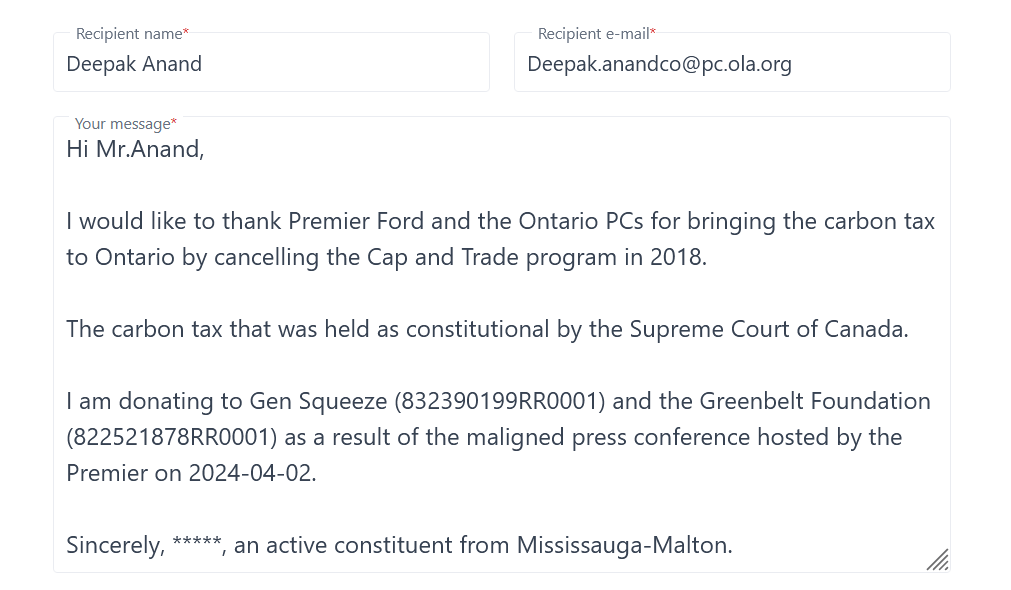this post was submitted on 02 Apr 2024
23 points (96.0% liked)
Ontario
2186 readers
3 users here now
A place to discuss all the news and events taking place in the province of Ontario, Canada.
Rules
- No bigotry - including racism, sexism, ableism, homophobia, transphobia, or xenophobia.
- Be respectful, especially when disagreeing. Everyone should feel welcome here.
- No porn.
- No Ads / Spamming.
founded 3 years ago
MODERATORS
you are viewing a single comment's thread
view the rest of the comments
view the rest of the comments

Aren't corporations exempt from the tax and allowed to buy carbon credits at a much lower price instead? And aren't entire industries exempt, like agriculture (the single largest generator of carbon emissions in Canada)?
And don't those rebates for the carbon tax stop at just $61k income for an individual? Thats barely enough to buy a 50 year old trailer in BC (and you don't own the land it's on) last I checked. Considering the cost of living I'm sure that "low income" cutoff is way too low.
All that amounts to middle class people who are barely making their mortgage payments paying more than corporate giants are.
When you measure tax contributions as a percentage of total wealth, corporations and ultra rich always pay less than everyone else.
Under the current carbon pricing scheme, there is no such thing as purchasing of carbon credits. This might be the case under a cap and trade system, which currently only exist in places like Quebec and California (and formerly Ontario). Additionally, if corporations were exempt, there would be no need to buy carbon credits.
There are special areas such as home heating where there is a temporary hiatus on the carbon pricing.
The carbon tax rebates apply uniformly. But remember that carbon pricing punishes those who heavily rely on carbon based fuels (e.g. people with multiple vehicles, homes, etc).
Carbon pricing is not intended to redistribute wealth. So the point about the upper class paying a lesser percentage of their wealth is not relevant and we also don't have evidence of this.
Then what's the fucking point. Wealth distribution is core of all problems in society.
Wrong. You can literally do it with your own taxes. Go look up the corporate taxes for any public company (they're public so they publish those numbers), and figure out what percentage of that company's total wealth it is. Then compare that with how much tax you paid as a percentage of your total wealth.
You can even do it with billionaires because some of them, like musk, actually voluntarily share that info. Last year I paid over 20% of my total wealth in income tax alone, musk paid less 4%.
Okay, so the problem is that because fossil fuels are cheap, most people don't find it very worthwhile to explore new or more efficient ways to do things. This is especially true for the wealthy, for whom gas and heating costs are basically nothing, so they will do dumb shit like heat their homes while leaving windows open, or buy larger and less efficient luxury cars.
The federal program fixes this. It adds a small cost to using fossil fuels, collects that money, and pays it back out to everyone. That means that people who use more carbon than average (which, again, is the willfully wasteful) will see a small penalty for their waste, while the people who are already trying their best to cut back will see a LARGE benefit, as they get a direct payment of cash for doing their part to conserve. If you are about average, there's very little impact on you, but you NOW have an economic inventive to try and economize.